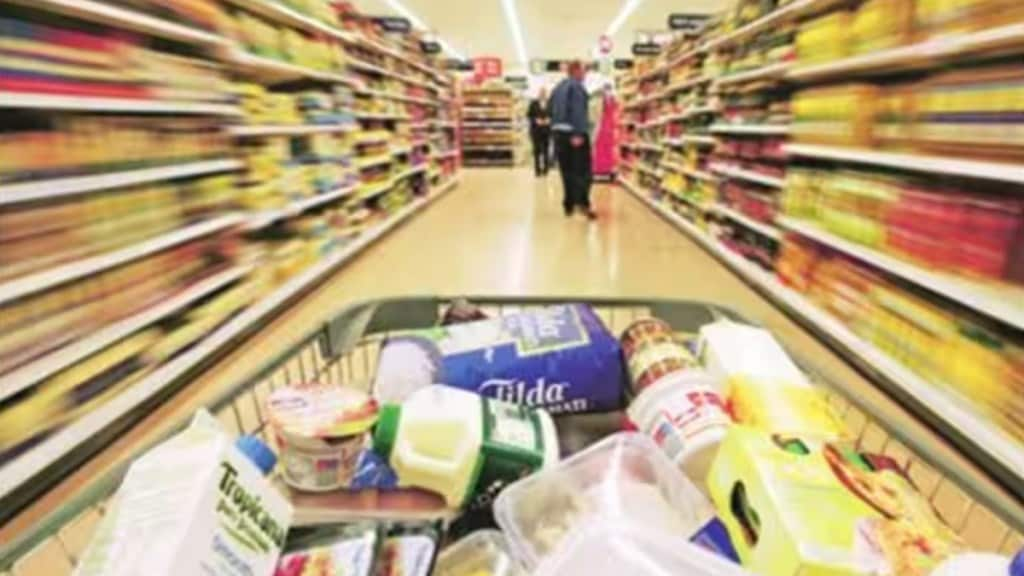Some of the country’s top consumer goods companies including names such as Nestle, Mondelez, ITC, Hindustan Unilever (HUL), Britannia, Tata Consumer and Procter & Gamble (P&G) have lined up investments to the tune of Rs 17,200 crore over the next few years, as they look to ramp up operations in India.
The total amount has been collated based on announcements these firms have made in the last few months, coming at a time when the domestic fast-moving consumer goods (FMCG) market is expected to revive.
Market research agency NielsenIQ says that the FMCG market in India will grow between 7-9% this year, with the rural market beginning to recover from a protracted slowdown.
“FMCG companies have navigated a difficult period, including Covid-19, followed by a rural slowdown,” says Kaustubh Pawaskar, deputy vice president, research, Sharekhan, a brokerage firm.
“While urban demand remains stable, rural demand will revive, albeit gradually. Companies are seeing this as an opportunity to gear up for the future as rural demand begins to kick in,” he says.
Those signs are becoming apparent now. Last week, Nestle India said that it had received an approval to invest Rs 894 crore in a new Odisha plant. This is part of its Rs 5,000-crore investment plan in India, which was announced in September last year by Nestle‘s global CEO Mark Schneider. The period of investment will extend up to 2025, with the Swiss major tapping new and existing categories of growth by setting up factories, research centres and scouting for acquisitions, Schneider said.
Patanjali Foods and P&G, on the other hand, indicated last month that they were investing Rs 1,500 crore and Rs 2,000 crore each in new units in the country over the next few years. While Patanjali Foods, according to CEO Sanjeev Asthana, would look to scale up its palm oil business in five years, P&G’s investment would go into creating a personal healthcare facility in Gujarat.
The plant will be operational in a few years, P&G India’s CEO LV Vaidyanathan said, and would help transform India into an export hub for P&G globally. The facility will make products that are part of P&G’s global healthcare portfolio, especially, digestives, he said.
“It also marks a significant milestone in our journey, enabling us to extend our local footprint and elevate our capacity,” he said.
Experts say that a rural revival augurs well for the FMCG market as over a third of sales for companies comes from the hinterland. A stable urban demand, on the other hand, means that companies will look to push more premium products into the market.
Mondelez, for instance, said in March this year that it would be setting up new production lines at its factories in Maharashtra, Madhya Pradesh, Andhra Pradesh, and Himachal Pradesh at an investment of Rs 4,000 crore over the next four years. This would help it improve penetration of chocolates, biscuits and choco-bakery and capitalise on the surge in consumption for these products in the country.
Meanwhile, biscuit major Britannia is looking at a bigger push into segments such as croissants, cakes, cheese and dairy by pumping in Rs 600 crore in 2023-24 for ramping up its dairy capacity, setting up a new plant in Odisha and making investments in new lines at Ranjangaon, Pune District, Maharashtra. Britannia is also in the process of putting up new plants in Tirunelveli (in Tamil Nadu) and Uttar Pradesh, the company said in a recent earnings call.
HUL and ITC, on the other hand, are looking at new levers of growth as they look to expand their business in the country. While HUL is setting up a new facility in Uttar Pradesh’s Sumerpur that has a spray-dried detergent powder plant and a distribution centre at an investment of Rs 700 crore by 2025, ITC’s chairman and MD Sanjiv Puri said the firm would accelerate investments to the tune of Rs 3,000 crore annually for building new manufacturing units and increasing research & development, distribution and sales capabilities.


